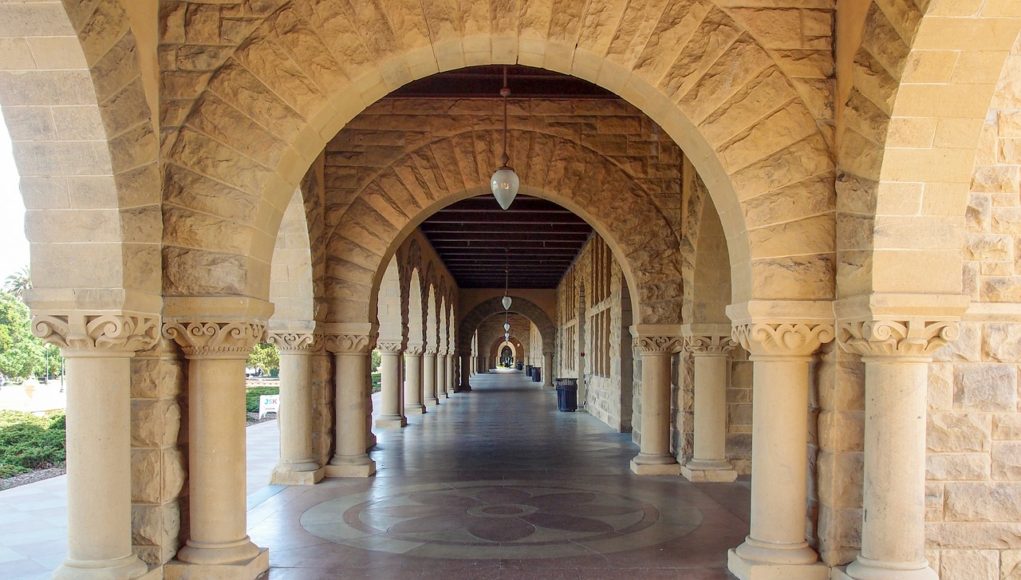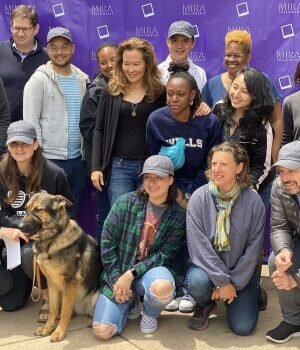Deadline: November 15, 2017 15:00 GMT-0800
[Oops, the opportunity has already expired. Sign up to AlphaGamma weekly newsletters to stay ahead of the game] | Apply here
Eligibility: This program is aimed at mid-career practitioners working actively in the fields of democracy, development, and the rule of law.
Location: Stanford, the United States
Draper Hills Summer Fellowship on Democracy and Development Program 2018
Launched in 2005, the Draper Hills Summer Fellowship on Democracy and Development Program (DHSFDD) is a three-week academic training program that is hosted annually at Stanford University’s Center on Democracy, Development, and the Rule of Law.
The program brings together a group of 25 to 30 mid-career practitioners in law, politics, government, private enterprise, civil society, and international development from transitioning countries.
This training program provides a unique forum for emerging leaders to connect, exchange experiences, and receive academic training to enrich their knowledge and advance their work.
About the programme
The program is funded by the generous support from Bill and Phyllis Draper and Ingrid von Mangoldt Hills.
For three weeks during the summer, fellows participate in academic seminars that expose them to the theory and practice of democracy, development, and the rule of law.
Delivered by leading Stanford faculty from the Stanford Law School, the Graduate School of Business, and the departments of economics and political science, these seminars allow emerging leaders to explore new institutional models and frameworks to enhance their ability to promote democratic change in their home countries.
Guest speakers from private foundations think tanks, government, and the justice system provide a practitioners viewpoint on such pressing issues in the field.
Summer Fellows also visit Silicon Valley technology firms such as Benetech, Google and Twitter to explore how technology tools and social media platforms are being used to catalyze democratic practices on a global scale.
The Draper Hills Summer Fellows alumni network includes 325 alumni from 81 developing democracies worldwide.
Their professional backgrounds are as diverse as the problems they confront in their home countries, but the one common feature is their commitment to building sound structures of democracy and development.
The regions of Eurasia, which includes the former Soviet Union and Central Asia, along with Africa constitute almost half of our alumni network.
Women represent 46 percent of the network and the program is always looking to identify strong female leaders working to advance change in their local communities.
Previous Draper Hills Summer Fellows have served as presidential advisors, senators, attorneys general, lawyers, journalists, civic activists, entrepreneurs, judges, think-tank directors, and influential members of the international development community.
The program is highly selective and receives hundreds of applications each year.
Who should apply?
This program is aimed at mid-career practitioners working actively in the fields of democracy, development, and the rule of law.
Applicants can be working as policy-makers, academics, legal professionals, social entrepreneurs, business entrepreneurs, and leaders of civil society organizations (such as representatives of trade unions, nongovernmental organizations, the media, business and professional associations).
- In their present capacity, applicants should play important and influential roles in their country’s political, economic, and social development.
- Participants should have demonstrated professional and personal achievements in a relevant sector of democracy, development, and the rule of law.
- Each year the fellowship strives to recruit a diverse group of 25 to 30 individuals who are at the right stage in their professional trajectory to benefit from rigorous academic training to enhance their potential to promote democratic change in their home countries.
- Successful applicants will have academic credentials necessary to participate and contribute to the six-hour seminars each day and tackle advanced academic readings to complement the classroom-based curriculum.
- Ninety-nine percent of our alumni hold a bachelor’s degree at the time of their participation in the program but this is not a requirement for admission to the program.
- A working knowledge of English is an important prerequisite for participation in the program. It is expected that each fellow has a solid command of written and spoken English to fully benefit and participate in the program.
For more opportunities, check our opportunities sections and subscribe to our weekly newsletters.






